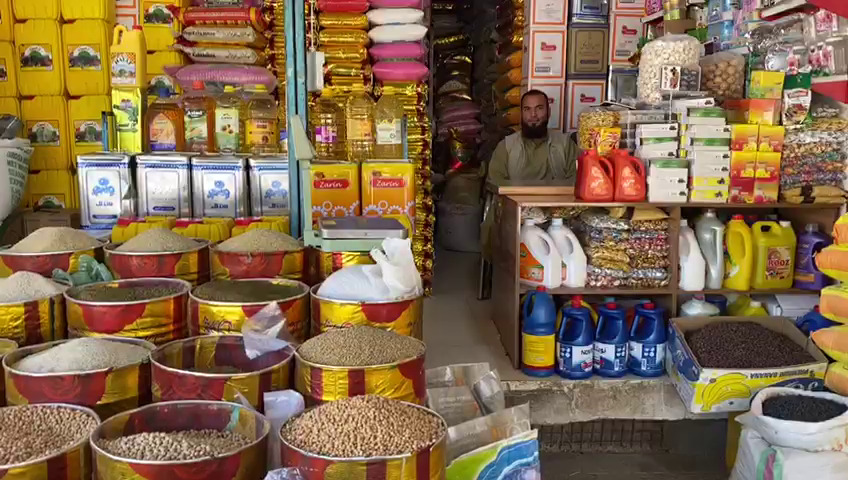The shop owners said they paid 12,000 Afs ($140) in tax for each shop under the previous government, but now the amount has increased to 35,000 ($409). In addition to the shop tax they also have to pay tax on signage boards and on equipment.
“Taxes have increased by at least 40 percent but our income is so low. For instance, previously, we sold one bag of rice for 1,800 Afs ($21) and we made 50 Afs (59 cents) from it, but now we sell it between 2,800 Afs to 3,000 Afs ($32 to $35) but we still get 50 Afs in revenue,” explained Mohammad Hadi, a shop owner in Herat.
“All our money has been invested in buying the goods meanwhile, taxes have increased and there are efforts to increase the rent for the shops,” he added.
Another shop owner, Mohammad Yusuf, said that imposing high taxes on them is not fair and it has pushed many of them out of business.
“All expenses have increased. Many have not been able to afford this and they have closed their shops,” he said.
But Taliban officials from the finance department in the province claimed that taxes have dropped to 0.5 percent from 1.5 percent in the past.
“Taxes are counted annually. We divide their sales to 300 days and multiply it by 0.5 percent and get taxes from them,” said Humayun Tokhi, Taliban’s head of finance in Herat.
But shop owners in Herat said they have tax papers given to them by the Taliban. However, they said they could not show these documents to Amu due to security reasons.
They said that at least 10 shops have closed down due to the increase in taxes and because of other expenses.The imposition of high taxes by the Taliban on different businesses, especially shops, has created concerns in other parts of the country, including Kabul, where shop owners said they are fed up with the increase in taxes which has added a lot of pressure on them.




